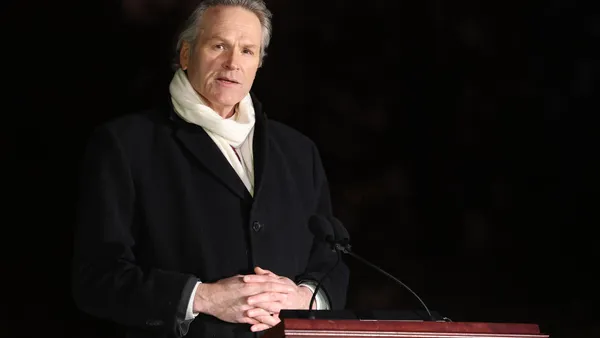Dive Brief:
- As state legislative sessions get underway, some governors and lawmakers are gearing up to propose universal school meal policies on a statewide basis. Legislators have already pre-filed bills in South Carolina and Missouri to ensure free school breakfast and lunch for all children.
- In New Mexico, Gov. Michelle Lujan Grisham said in a December speech that she will advocate for free school meals during the new legislative session, the Albuquerque Journal reported. Likewise, Minnesota Gov. Tim Walz said he would support universal school meals in light of a projected $17.6 billion budget surplus, according to MinnPost.
- In Nevada, where legislators OK’d universal school meals for the 2022-23 school year, the state’s Interim Finance Committee approved using $28 million in federal COVID-19 relief funds to extend that program into the 2023-24 school year.
Dive Insight:
More state-level efforts supporting universal school meals are on track now that there’s little hope for a more immediate federal pathway to providing free meals to all schoolchildren.
A pandemic-era waiver from Congress granting universal school meals nationwide expired in June. Since Congress did not renew the waiver, schools returned this fall to collecting free and reduced-price meal applications and scrambling to pay off school meal debt that was once again accruing. As leaders anticipated the waiver’s expiration, efforts to pass universal meal policies on a statewide basis began to simmer.
So far, three states — California, Maine and Colorado — have secured permanent universal school meal policies, while Vermont and Massachusetts have approved free school meals for just the 2022-23 school year. These efforts coincide with Nevada’s extension of universal school meals for the 2023-24 academic year.
Congress could still help support universal school meals even without federal legislation instituting the policy, said Crystal FitzSimons, director of school and out-of-school time programs at the Food Research & Action Center. One way could be through increasing state reimbursement rates for school meals, she said.
“This is not an issue that’s going to go away,” FitzSimons said. “The fact that states are taking it up when Congress has failed to act, I think, just speaks to how important of an issue it is and how needed it is.”
Data released by the U.S. Department of Agriculture in September revealed the positive impact universal school meal implementation had on curbing child hunger nationwide during the pandemic. Food-insecure households with children decreased by 2.3 percentage points between 2020 and 2021, after universal school meals were implemented, according to the USDA.
While it’s unclear if Congress will act in the near future, the White House did announce in September its goal to provide free school meals for 9 million more students by 2032 — a step it sees toward ultimately securing a permanent universal school meal policy.














